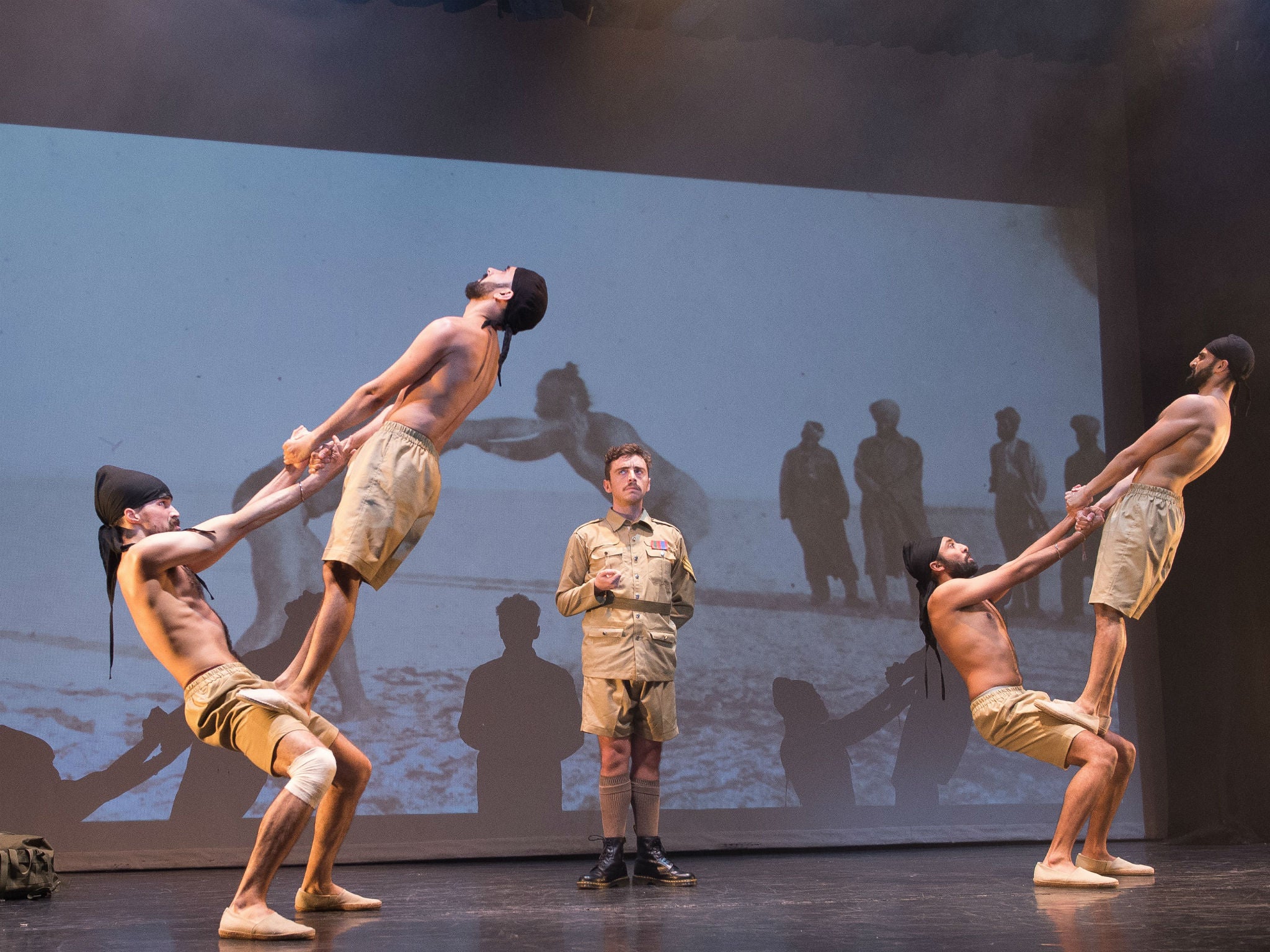The Troth, Southbank Centre, London, review: Pays tribute to 60,000 Indian soldiers who died in WWI
Based on Chandradhar Sharma Guleri’s celebrated Hindi short story 'Usne Kaha Tha', Akademi performed The Troth as part of the Alchemy festival

Your support helps us to tell the story
From reproductive rights to climate change to Big Tech, The Independent is on the ground when the story is developing. Whether it's investigating the financials of Elon Musk's pro-Trump PAC or producing our latest documentary, 'The A Word', which shines a light on the American women fighting for reproductive rights, we know how important it is to parse out the facts from the messaging.
At such a critical moment in US history, we need reporters on the ground. Your donation allows us to keep sending journalists to speak to both sides of the story.
The Independent is trusted by Americans across the entire political spectrum. And unlike many other quality news outlets, we choose not to lock Americans out of our reporting and analysis with paywalls. We believe quality journalism should be available to everyone, paid for by those who can afford it.
Your support makes all the difference.Memory is at the heart of Akademi’s superb The Troth. A cinematic story of love and sacrifice, it also pays tribute to the 60,000 Indian soldiers who died serving the British Army in the First World War. Vivid storytelling is paired with mesmerising archive footage to create a layered, heartfelt production.
The Troth’s London premiere was a highlight of Alchemy, Southbank Centre’s festival of UK and South Asian arts. Based on Chandradhar Sharma Guleri’s celebrated Hindi short story “Usne Kaha Tha”, it’s a tale of unrequited love.
Lehna Singh meets the beautiful Leela, and despairs when she marries another man. When war is declared, he risks everything to protect her husband and son as they fight in the trenches.
Akademi, a leading producer of South Asian dance in the UK, brought in contemporary choreographer Gary Clarke, known for both storytelling and political context. The result is a blend of Indian classical and British contemporary styles that also references early Indian cinema.
When Subhash Viman Gorania’s idealistic Lehna meets Vidya Patel’s Leela, they communicate in the traditional gestures of Indian dance – with silent movie subtitles translating on the screen behind them. Discovering that she will marry someone else, Lehna wipes his eyes – a naturalistic gesture that is even more touching in this stylised framework.
Patel, a finalist in the 2016 BBC Young Dancer competition, is a dancer of fluid grace and dramatic authority. She and Gorania are enchanting in their first meeting, moving from shyness to sweet flirtation. Her fear and grief for her family build across a series of solos, her body bowing and shaking as the threat of war grows.
The drama is framed by extracts from Indian soldiers’ letters, and extraordinary wartime film from the Imperial War Museums. We see South Asian soldiers building barbed-wire defences in a rainy European landscape, ranks of turbaned men marching to fight.
Too often, they are shamefully forgotten in accounts of British warfare; recently Christopher Nolan’s Dunkirk claimed historical accuracy while leaving out Indian and African soldiers. Their sacrifice runs through The Troth.
Clarke makes powerful use of the films. Sometimes he leaves these images to speak for themselves. In other scenes, archive footage becomes a backdrop to his characters’ army training, with dance and film echoing each other across a century.
Shri Sriram’s commissioned score blends different national instruments, with a skirl of pipes for the British army and widescreen romance for Leela and Lehna. With the clarity of good filmmaking, The Troth moves from an individual, human story to a wide canvas of politics and history.
Join our commenting forum
Join thought-provoking conversations, follow other Independent readers and see their replies
Comments